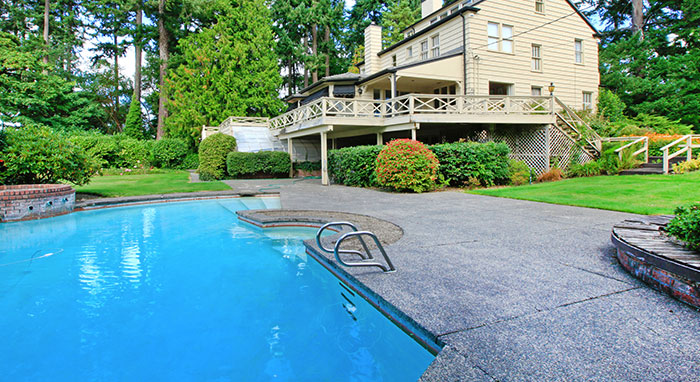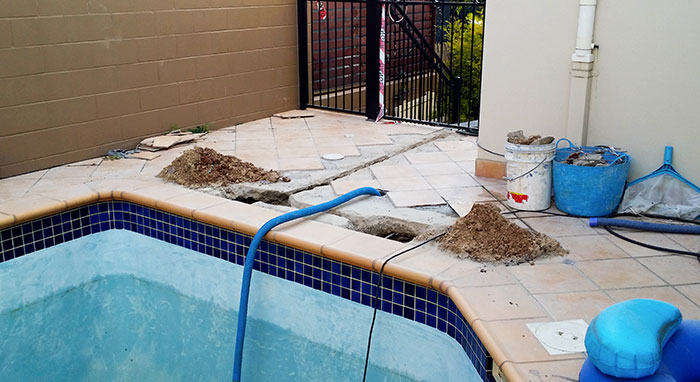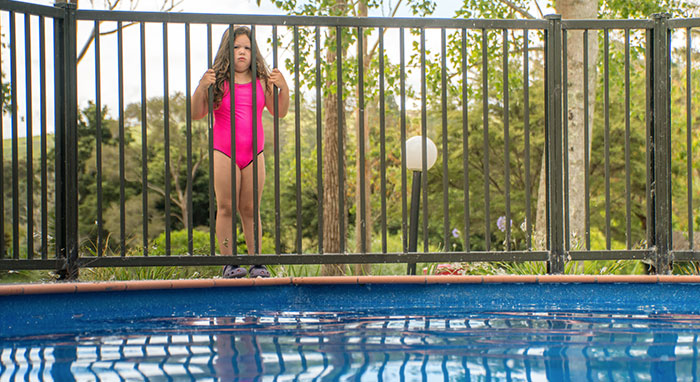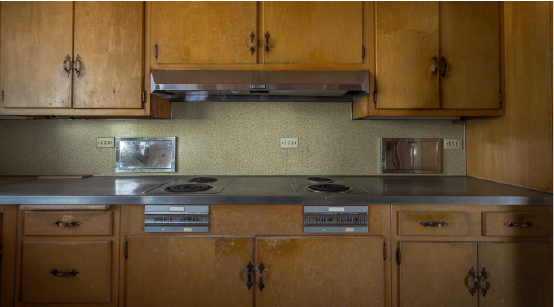
Updated January 23, 2023
Are you considering buying a house with a pool and want to know if it's a smart investment?
Maybe you already have a pool and are having second thoughts about keeping it.
Pools are great in theory, but there can be hidden downsides that lead to a pool being more of a headache than a relaxing haven.
An inground pool can seem like the ultimate luxury, and to some, it certainly is, but a pool is just a pain if it's:
- in need of repair
- requires extensive maintenance
- is taking up space that could be better suited for something else
There are many benefits to a pool—no one is likely to argue that.
But there are just as many drawbacks, if not more so, that should be carefully considered.
Let's take a closer look at some of the biggest cons of owning a pool to investigate whether or not removing or filling in your pool makes financial sense in your case...
Find a local pool removal contractor
Cons of Owning a Pool
Heating and water costs can be expensive.
Running a pool heater costs $100 - $600 per month depending on various factors, like the temperature, humidity, and average wind speeds.
The most common types of swimming pool heaters use propane, natural gas, or electricity as their fuel source, and each has its benefits.
Gas heaters cost less up front but more over time.
Conversely, electric heat pumps are more expensive up front but are cheaper to run over time.
The U.S. Department of Energy (DOE) estimates that it costs about $1,500 to heat a 1,000 sq. ft. pool in New York to 78 degrees (average temperature recommended by International Code Council) between May 1st to September 30th—the five warmest months of the year when a pool is most often utilized.
In this circumstance, that equates to roughly $300/month to heat a pool that size.
The DOE estimates that for every one-degree increase in pool temperature, energy consumption increases by 10% - 30%.
A good-quality pool cover can help reduce pool heat loss by 50% or more depending on where you live and can also reduce evaporation.
Pool maintenance can be a hassle.

There are rules to owning a pool.
No, not the 'Pool Rules' you're used to seeing on the side of a public pool.
There are codes put in place to keep people and the environment safe.
These pool regulations require up-to-date and operational equipment, code-compliant drain covers, pool barriers, etc.
The cost of these various components can be more than some people are prepared to take on, and they can add up especially quickly in the case of an old, outdated pool.Learn more about swimming pool codes: 2018 International Swimming Pool and Spa Code
Water evaporation is something to consider.
The average pool sees ¼ - ½ an inch of water loss per day due to evaporation.
This equates to about 2 - 4 inches of water per week.
A typical-sized pool loses roughly 25,000 - 50,000 gallons of water per year due to evaporation alone.
If you live in a particularly hot and/or dry area, expect evaporation to happen even more quickly.
The same can be said for windy environments as well.
First-time pool owners may think their pool has a leak when they discover how quickly evaporation depletes the water level. Depending on where you live, it'll be necessary to top off the water level every week or so to keep it from getting too low.
Not only is refilling your pool a pain, but it's also a strain on your wallet and the environment.
Another more sneaky downside of evaporation is its effect on the pool's water temperature.
One of the biggest culprits of energy loss (i.e. heat loss) is evaporation.
If you add a pool cover, you can reduce the amount of heat loss that occurs from evaporation, and you’ll notice significant savings.
Insurance coverage may need to be increased.

In the insurance business, swimming pools are the most commonly cited example of an “attractive nuisance,” or anything that might simultaneously attract and endanger an unsupervised child.
Other examples of common 'attractive nuisances' are trampolines and man-made ponds.
Because of this title, pool owners are responsible for taking proper measures to protect unsuspecting children from the potential danger of an attractive nuisance, like a pool.
This could include installing a fence around the pool's perimeter, using a safety cover when the pool is not being used, and having easy-to-access safety equipment nearby.
Even when taking reasonable precautionary measures, you may still want to consider increasing your homeowner's insurance coverage and limits.
This will, in turn, result in a higher annual premium.
When it comes to homes with pools, insurance companies recommend increasing liability coverage from $100,000 to $500,000.
This could increase your monthly bill $50 - $100 depending on rates where you live.
Speak with your insurance company to see which coverages are preferred in your situation.
Find a pool removal contractor near you
Pros of Owning a Pool
Fun in the sun.
Everyone can likely agree that a pool that is in good condition is a fun place to be!
Taking a swim with friends and family is a great way to spend warm months out of the year.
Keeping a pool makes financial sense in certain situations.
A pool only makes financial sense if all circumstances are right when it comes time to sell. In a perfect scenario, a pool will increase a home's value by an average of 7%.
Some examples of a 'perfect pool scenario' include:
- You live in a higher-end neighborhood and most of your neighbors have pools. (In this case, not having a pool might make your home harder to sell.)
- You live in a warm climate, such as Florida or Hawaii.
- Your property is big enough to accommodate a pool and still have some space left over.
- The style of the pool fits the neighborhood.
- The pool is well-maintained and in good condition.
- The pool is not too old or out of date.
- You can attract the right buyer. (Couples with very young children may not be interested in homes with pools because of potential safety issues, but an older, childless couple, or a family with kids who can swim, may fall in love with it.)
Pros of Removing a Pool
- You save time and money on swimming pool maintenance.
- You have more yard space for other activities or landscaping opportunities.
- You no longer have the additional hazards and liabilities that come with pool ownership.
- If you sell your house, it may increase the number of potential buyers and make your home easier to sell.
- If you have young children, removing your pool eliminates the potential safety hazards associated with pool ownership.
Cons of Removing a Pool
- No more pool to swim in...
Find a qualified pool removal contractor
Keep reading about swimming pool removal:


